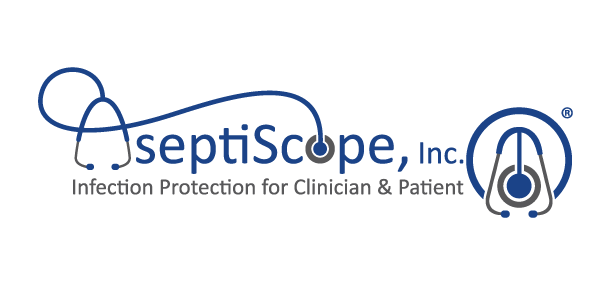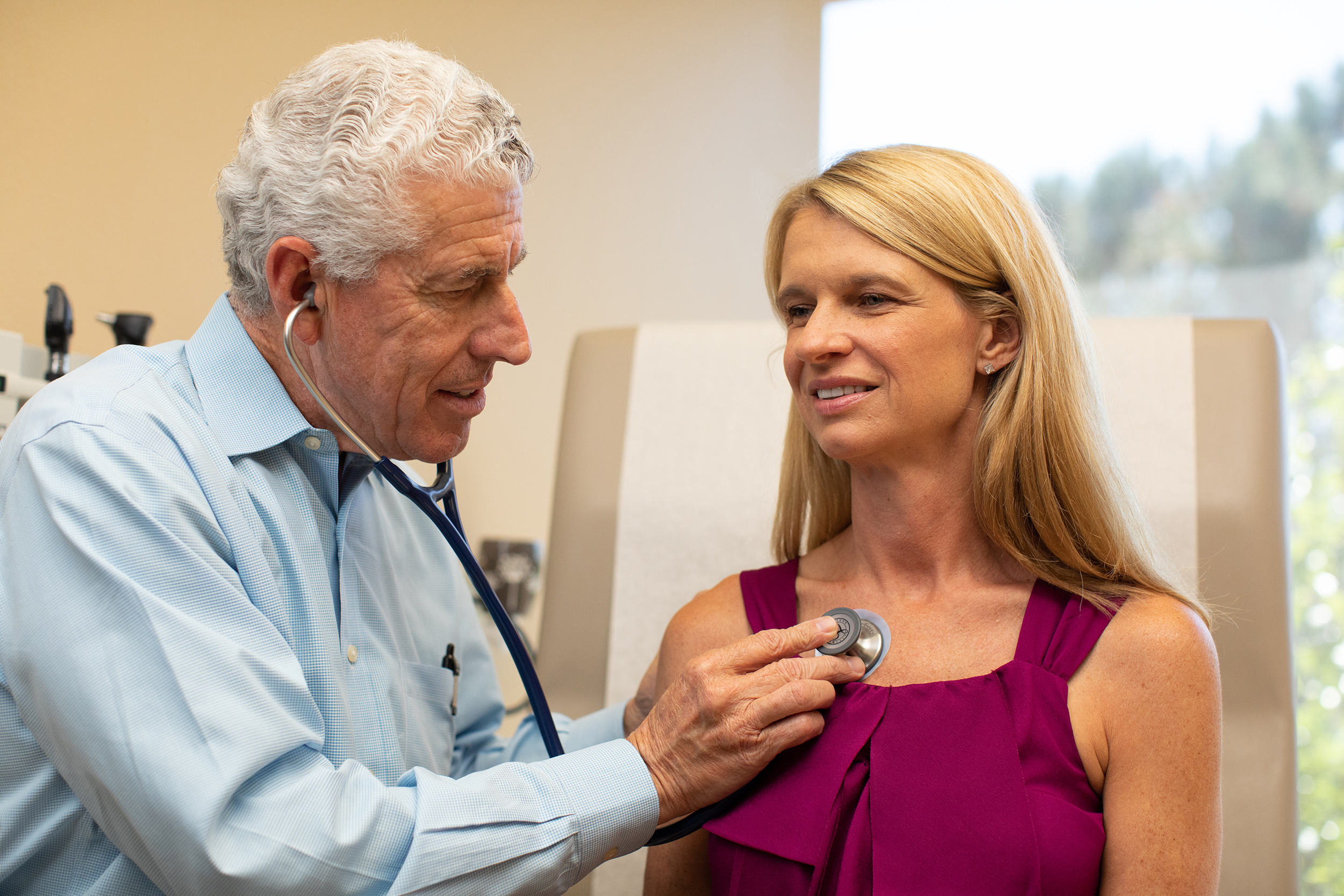
“Aseptiscope® highlights shortcomings in stethoscope hygiene and other medical instruments”
Kristen Lynch | Contributor
Published 2:51 p.m. ET Aug. 7, 2023
Since the invention of the stethoscope by Rene Laënnec in 1816, the most relied-upon diagnostic tool in modern healthcare delivery and, in popular culture, is one of the identifiers of a doctor or other medical professional. However, as early as 1972, this ubiquitous medical tool has been identified as a major vector for the spread of pathogens, as the diaphragm frequently comes into contact with people, and it is not sanitized as often as it should, as opposed to strict hand hygiene protocols. Even during the COVID-19 pandemic, a study has found that stethoscopes were disinfected per CDC guidelines in less than 4% of encounters and were not disinfected at all in 82% of encounters.
The stethoscope’s frequent use, estimated at around 5 billion times a year in the US, and its involvement in healthcare-associated infection has earned it the reputation as “the clinician’s third hand”. Because it is so frequently used, it is quite inconvenient to sterilize it after each and every use. Two ways of getting around this also present their disadvantages, as disposable stethoscopes are wasteful and costly, while using alcohol is time-consuming and may promote the growth of alcohol-resistant bacteria.
Scott W. Mader, co-founder and CEO of medical innovation startup Aseptiscope®, says this situation has led him to realize that infection control in the medical field remains very poor, and that it has failed to innovate for many decades. In most general medical settings, the protocol remains slathering alcohol over most surfaces, and grabbing a pair of gloves that are stuffed into a tissue box. He believes that this is very primitive relative to what things should be, which is the use of the aseptic technique, the gold standard for infection control. While PPE like non-sterile gloves, masks, and alcohol gel – so prioritized during the pandemic- is designed to protect medical practitioners, aseptic measures are designed to protect the patient.
However, aseptic technique is a time-consuming and painstaking process. After sterilizing something, it is quite difficult to deliver it somewhere else without contaminating it in any way. Surgery preparation, for example, is a very meticulous process, and its standards cannot be reasonably applied in day-to-day healthcare. This is despite healthcare-associated infections in the US causing almost 100,000 deaths and costing the health system around $40 billion each year.
Even before the pandemic, Mader and his cofounders were looking to address this problem, and they engaged infection control experts to identify their pain points. This led to Aseptiscope creating the DiskCover® System, which provides a touch-free, near-instantaneous way for clinicians to apply a single-use, disk cover barrier on their stethoscope, acting as a glove for the clinician’s third hand. Each disk cover is durable and produced aseptically in Aseptiscope’s clean room. It is acoustically invisible, meaning that it has no effect on the sound quality of the stethoscope, and it has a peel-off tab for easy removal.
The disks are dispensed through a touch-free, wall-mounted dispenser with motion sensors. The process, which takes only roughly a second, is activated by the stethoscope user by waving their hand under the dispenser and then placing the stethoscope’s diaphragm into the dispenser’s port to apply the disk. The dispenser is loaded with an easily replaceable Clean Cassette®, which contains 420 disks and preserves them in an aseptic environment until it is applied to a stethoscope.
“One of the greatest stumbling blocks of innovation is that people are resistant to change, and healthcare professionals are no exception. In developing the DiskCover system, we made it as non-disruptive as possible to the established workflow and with minimal added cost to healthcare providers,” Mader says.
A survey by Aseptiscope showed that more than 95% of clinicians said that the DiskCover system was easy to use, that it had a neutral or favorable impact on workflow, and that it will improve stethoscope hygiene compliance and patient safety.
Aseptiscope was founded in 2016, and Mader says the pandemic definitely affected the company’s ability to launch the DiskCover System, with lockdown mandates and supply chain issues plaguing startups, threatening to bring the project down. The company’s leadership team is composed of clinical innovation experts, medical researchers, and practicing physicians, and it develops and validates its products through an evidence-based process. This is unlike many other devices that emerged during the pandemic that promised to help prevent infection, but were unable to demonstrate efficacy during controlled trials.

Mader likens the pandemics’ impact on infection control to the impact 9/11 had on terrorism. “9/11 forever elevated global vigilance on international terrorism, and, the same can be said for the influence of COVID-19 on society’s vigilance against infection, where we were provided a wake-up call on our vulnerability to infection”
Moving forward, Aseptiscope is looking to develop solutions similar to the DiskCover system for other medical devices that often come in contact with patients, such as ultrasound probes, which are all vectors for healthcare-associated infection.
“At Aseptiscope, we use a method called market-driven science in all the products that we initiate and develop. We actually produce solutions based on what the market tells us they need, and these are designed, vetted, and validated using peer-reviewed literature on infectious diseases. This allows customers to adopt innovation based on clear evidence, versus hyperbole” Mader says.
______________________________________________________________________________
Read the article directly from USA TODAY:

